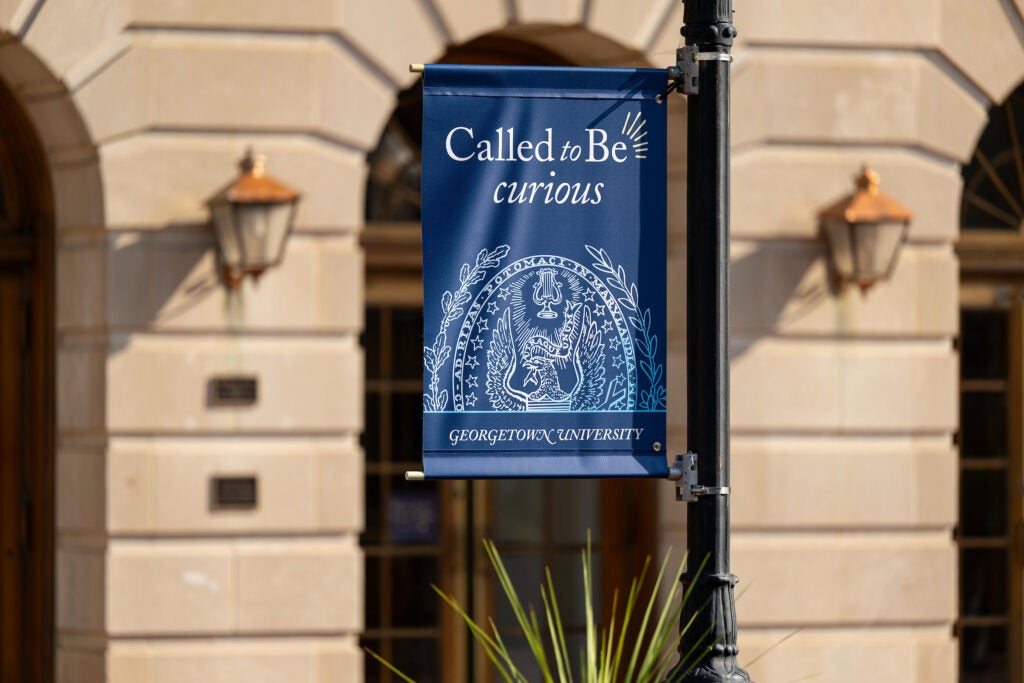The Career Planning Process: Reflection (Part 1)
Part 1 – Aligning Purpose with Profession: Graduate Students Should Reflect on Their Values, Skills and Interests to Help Guide their Career Goals

Photo By: Phil Humnicky/Georgetown Univ.
Graduate school is often seen as a direct pathway to a specialized career. Yet, for many students, the transition from academia to the professional world can feel unclear or misaligned with their evolving personal identities. Between coursework, research demands, and professional expectations, it is easy to overlook one of the most vital parts of career planning – aligning your personal values with your professional aspirations. Reflecting on both of these is not just a philosophical exercise, it’s a strategic step toward setting realistic, fulfilling career goals.
Understanding Personal Values
Personal values are the core beliefs that guide our decisions, behaviors, and interactions. These may include integrity, autonomy, family, creativity, service, or financial stability, among others. In graduate school, students often prioritize external achievement—grades, publications, grants, and academic prestige. While these benchmarks matter, they don’t necessarily reflect what matters most to each individual.
Taking time to reflect on what truly motivates you, beyond what’s rewarded in academia, can help clarify what kind of work environment or career path would be genuinely fulfilling. For instance, if collaboration and social impact rank high in your value system, you might find more satisfaction in nonprofit, policy, or community-engaged work than in solitary research roles.
Identifying Professional Desires
Professional desires encompass what you want out of your career, including the roles you want to hold, the kind of work you enjoy doing, and the type of lifestyle you envision. These desires will shift over time, especially as you gain more experience and better understand your strengths and preferences.
It’s important to recognize the difference between idealistic and realistic career goals. An idealistic desire might be to become a tenured professor at a top-tier university, but a realistic path might include broader options such as teaching at a liberal arts college, working in academic administration, or translating research skills into a role in industry or government. Reflecting on your desires allows you to distinguish between what excites you and what is actually attainable, given your skills, priorities, and the current job market.
Bridging Values and Desires to Set Career Goals
The intersection of values and desires is where realistic and meaningful career goals are formed. Start by asking:
- What kind of impact do I want my work to have?
- What environments energize or drain me?
- What am I willing to compromise on? What is non-negotiable?
If your top value is autonomy and your desire is to pursue meaningful research, you might explore careers in think tanks or start-ups that value independent innovation. If stability and family life are key, you may prioritize careers with a predictable schedule and clear advancement paths, even if they are outside your original field of study or even outside of academia.
Making Reflection a Regular Practice
Self-reflection shouldn’t be a one-time activity. Schedule periodic check-ins with yourself, at the end of each semester for example, to evaluate how your current path aligns with your values and desires. Journaling, talking with mentors, or attending career workshops can all be helpful tools.
Additionally, seek informational interviews with professionals in a variety of roles. These conversations can help you understand how different careers align with your values and help you see possibilities you may not have considered.
Final Thoughts
Career planning in graduate school should be more than chasing titles or following a preset path. It should be an intentional process rooted in self-awareness. By reflecting on your personal values and professional desires, you gain clarity—not only on where you want to go, but on how to get there in a way that’s both realistic and personally meaningful. That alignment is the foundation for not just professional success, but lasting fulfillment.
Up Next: Part 2 – How to go through the reflection process methodically using assessment tools.